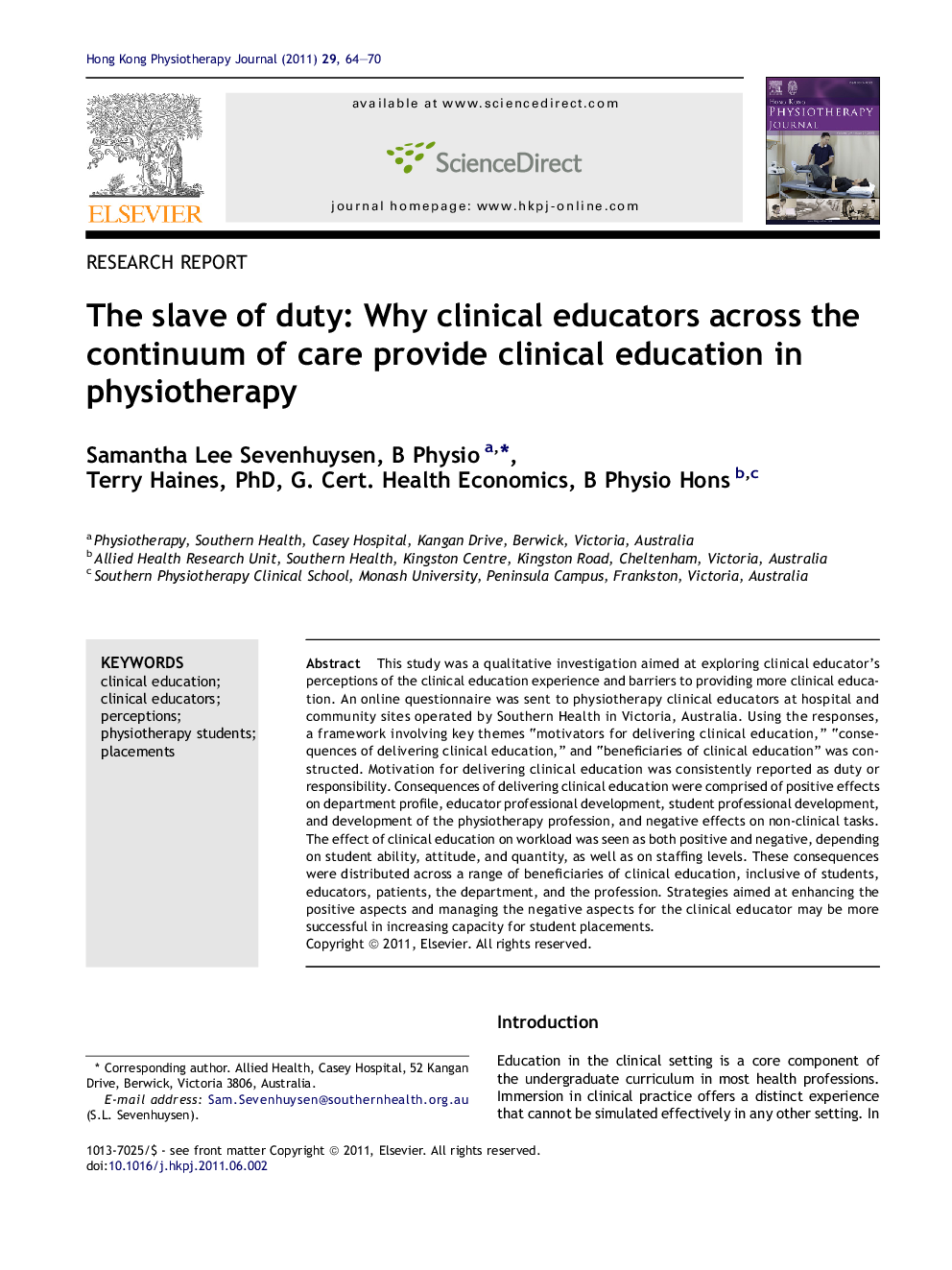| کد مقاله | کد نشریه | سال انتشار | مقاله انگلیسی | نسخه تمام متن |
|---|---|---|---|---|
| 2618482 | 1135430 | 2011 | 7 صفحه PDF | دانلود رایگان |

This study was a qualitative investigation aimed at exploring clinical educator’s perceptions of the clinical education experience and barriers to providing more clinical education. An online questionnaire was sent to physiotherapy clinical educators at hospital and community sites operated by Southern Health in Victoria, Australia. Using the responses, a framework involving key themes “motivators for delivering clinical education,” “consequences of delivering clinical education,” and “beneficiaries of clinical education” was constructed. Motivation for delivering clinical education was consistently reported as duty or responsibility. Consequences of delivering clinical education were comprised of positive effects on department profile, educator professional development, student professional development, and development of the physiotherapy profession, and negative effects on non-clinical tasks. The effect of clinical education on workload was seen as both positive and negative, depending on student ability, attitude, and quantity, as well as on staffing levels. These consequences were distributed across a range of beneficiaries of clinical education, inclusive of students, educators, patients, the department, and the profession. Strategies aimed at enhancing the positive aspects and managing the negative aspects for the clinical educator may be more successful in increasing capacity for student placements.
Journal: Hong Kong Physiotherapy Journal - Volume 29, Issue 2, December 2011, Pages 64–70